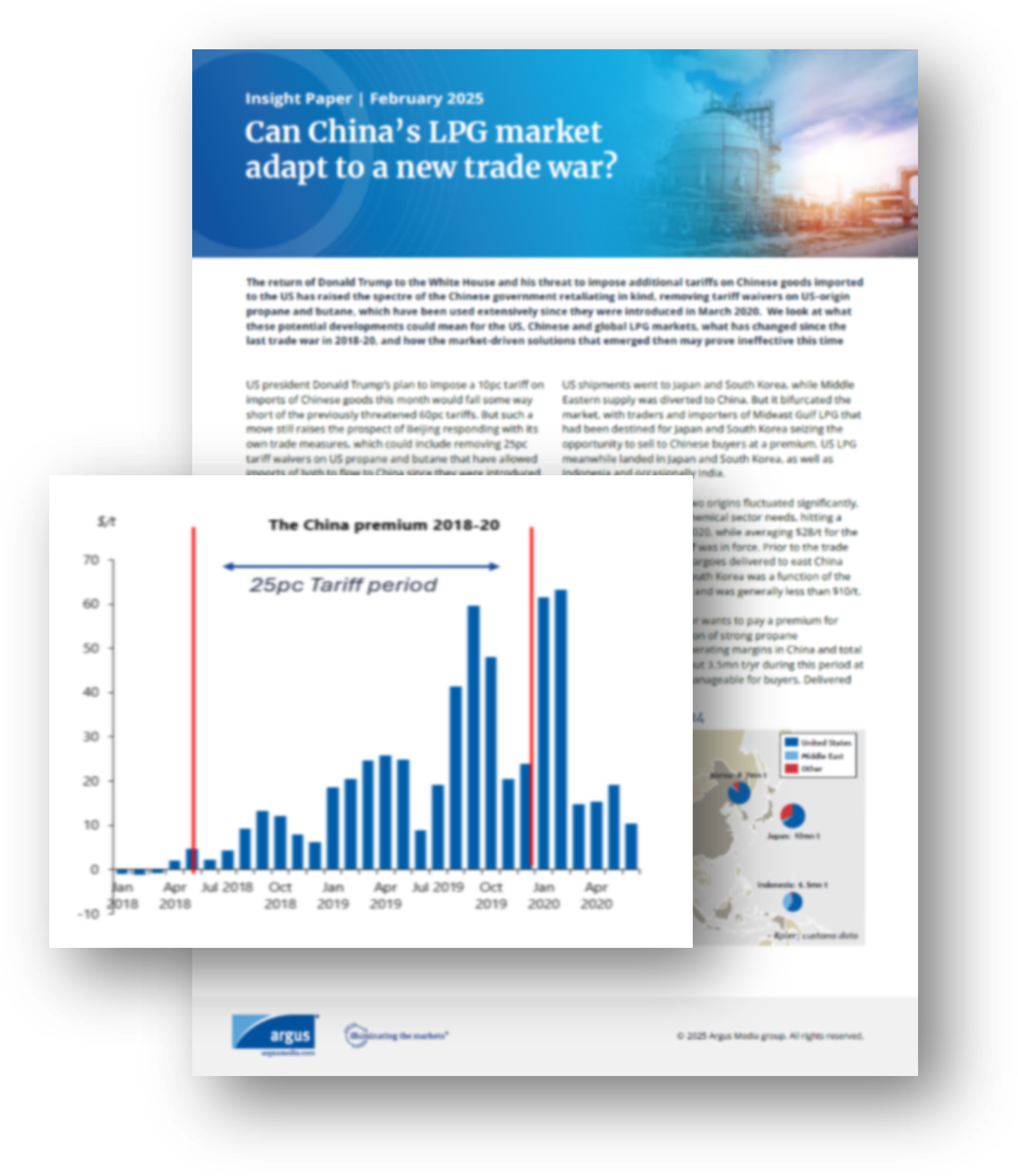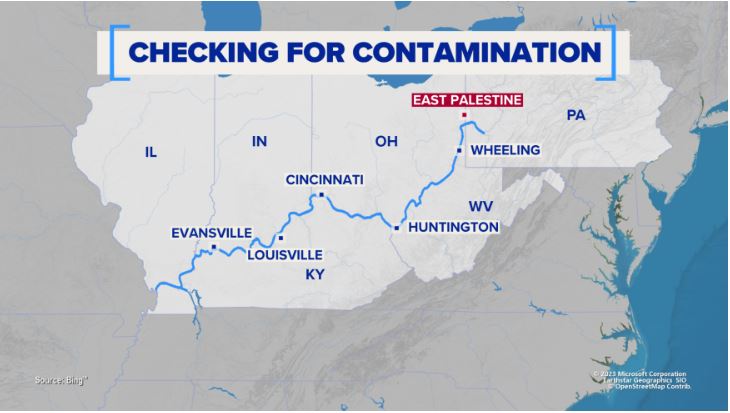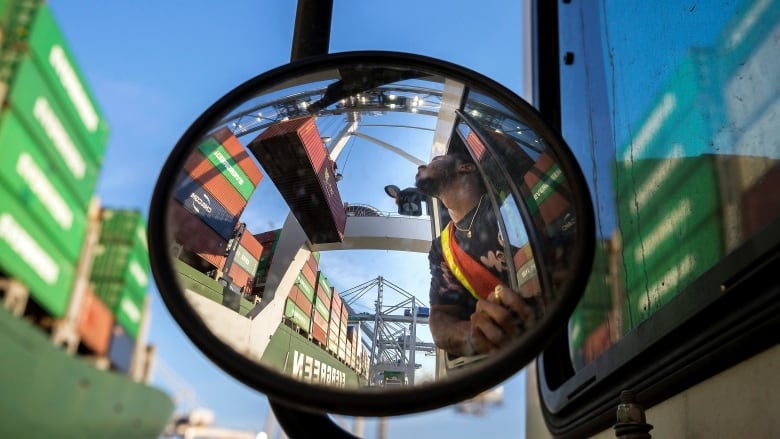Navigating Trade Wars: China's LPG Sourcing Strategy And The Rise Of The Middle East

Table of Contents
China's burgeoning energy demands, coupled with fluctuating global trade relations, have forced a reassessment of its Liquefied Petroleum Gas (LPG) sourcing strategy. The rise of the Middle East as a key supplier offers both opportunities and challenges in navigating the complexities of international trade wars and securing a stable LPG supply. This article explores China's shifting LPG import landscape and the growing influence of Middle Eastern producers, focusing on the crucial aspect of China LPG imports.
H2: The Impact of Trade Wars on China's LPG Supply
Trade tensions, particularly with traditional LPG suppliers, have significantly impacted China's energy security and its access to affordable LPG. The imposition of tariffs and trade restrictions has created price volatility and supply chain disruptions. This instability directly affects Chinese consumers and industries reliant on LPG for heating, cooking, and industrial processes.
- Increased tariffs and trade restrictions: Trade wars have led to increased tariffs on LPG imports from certain countries, making them less competitive in the Chinese market. This has forced China to seek alternative sources.
- Search for alternative and more reliable suppliers: The uncertainty caused by trade disputes has driven China to diversify its LPG import sources, reducing reliance on any single supplier and enhancing energy security.
- Price volatility and its impact on Chinese consumers and industries: Fluctuations in global LPG prices, exacerbated by trade wars, directly impact the cost of LPG for Chinese consumers and businesses, creating economic uncertainty.
- Government intervention and policy changes to mitigate risks: The Chinese government has responded by implementing policies aimed at mitigating the risks associated with trade wars, including strategic reserves and diversification initiatives. These policies are crucial for managing China LPG trade war impacts. Keywords: China LPG trade war, LPG tariffs, energy security China.
H2: The Rise of the Middle East as a Major LPG Supplier to China
The Middle East has emerged as a crucial source of LPG for China, offering a combination of geopolitical stability, competitive pricing, and readily available supply. Countries like Saudi Arabia, Qatar, and even Iran (despite geopolitical complexities) are increasingly supplying LPG to meet China's growing energy demands.
- Geopolitical stability and reliability of Middle Eastern sources: Compared to some other regions, the Middle East offers a degree of geopolitical stability, providing a more reliable and predictable LPG supply for China.
- Competitive pricing and long-term contracts: Middle Eastern producers often offer competitive pricing and the opportunity for long-term contracts, providing China with price certainty and stable supply arrangements.
- Investment in infrastructure (pipelines, terminals) to facilitate LPG trade: Significant investments in pipeline infrastructure and LPG terminals are enhancing the efficiency and capacity of LPG trade between the Middle East and China.
- Advantages and disadvantages of relying on a single region for LPG imports: While the Middle East offers significant advantages, over-reliance on a single region presents risks. Diversification remains a critical aspect of China's long-term energy strategy. Keywords: Middle East LPG exports, China LPG imports Middle East, Saudi Arabia LPG, Qatar LPG, Iran LPG exports.
H2: China's Diversification Strategy for LPG Sourcing
Recognizing the risks of over-reliance on any single supplier, China is actively pursuing a diversification strategy for its LPG imports. This strategy involves exploring alternative sources and strengthening domestic production capabilities.
- Exploration of partnerships with other regions like Southeast Asia, Australia, and Russia: China is actively forging partnerships with LPG producers in Southeast Asia, Australia, and Russia to diversify its supply chains and reduce dependence on the Middle East.
- Domestic LPG production and its limitations: While China is striving to increase domestic LPG production, it still faces limitations in terms of resource availability and production capacity.
- Investment in LPG storage and infrastructure to manage supply chain disruptions: China is investing heavily in LPG storage facilities and infrastructure to enhance its ability to manage supply chain disruptions and maintain price stability.
- Long-term implications of a diversified sourcing strategy for energy security: A diversified sourcing strategy is crucial for ensuring China's long-term energy security and reducing vulnerability to geopolitical instability or supply shocks. Keywords: China LPG diversification, alternative LPG suppliers, energy independence China.
H3: Technological Advancements and their Role in LPG Trade
Technological advancements are playing a significant role in improving the efficiency and cost-effectiveness of LPG transportation, storage, and handling.
- Improved liquefaction and regasification technologies: Advancements in liquefaction and regasification technologies are making LPG transportation more efficient and reducing costs.
- Advanced shipping and transportation methods: The development of larger and more efficient LPG carriers is significantly impacting transportation costs and timelines.
- Technological solutions for managing LPG storage and distribution: Technological advancements in storage and distribution management are improving supply chain efficiency and reducing losses. Keywords: LPG technology, LPG transportation, LPG storage.
Conclusion:
China's LPG sourcing strategy is undergoing a dynamic transformation driven by trade wars and the pursuit of greater energy security. The Middle East has become a vital supplier, but a diversified approach remains essential for mitigating risks and ensuring a stable and affordable supply of LPG. By carefully navigating geopolitical complexities and investing in infrastructure, technology, and strategic partnerships, China can secure its LPG needs while promoting a more balanced and competitive global energy market. Understanding the dynamics of China LPG imports, the implications of the China LPG trade war, and the opportunities presented by Middle East LPG exports is crucial for businesses and policymakers operating in this rapidly evolving sector. Continued research and analysis of China LPG imports will be essential for navigating this complex landscape.

Featured Posts
-
 Google Fis 35 Month Unlimited Plan A Budget Friendly Option
Apr 24, 2025
Google Fis 35 Month Unlimited Plan A Budget Friendly Option
Apr 24, 2025 -
 Building Contamination Following Ohio Train Derailment The Long Term Presence Of Toxic Chemicals
Apr 24, 2025
Building Contamination Following Ohio Train Derailment The Long Term Presence Of Toxic Chemicals
Apr 24, 2025 -
 Jan 6th Falsehoods Ray Epps Defamation Case Against Fox News
Apr 24, 2025
Jan 6th Falsehoods Ray Epps Defamation Case Against Fox News
Apr 24, 2025 -
 Faa Study Collision Risks At Las Vegas Airport
Apr 24, 2025
Faa Study Collision Risks At Las Vegas Airport
Apr 24, 2025 -
 Us Tariffs Drive Chinas Lpg Imports Towards The Middle East
Apr 24, 2025
Us Tariffs Drive Chinas Lpg Imports Towards The Middle East
Apr 24, 2025
